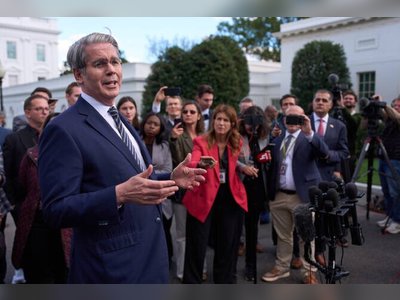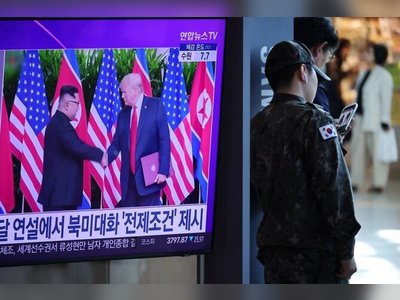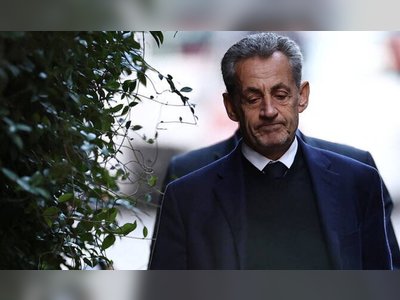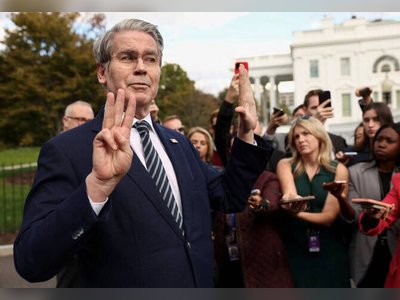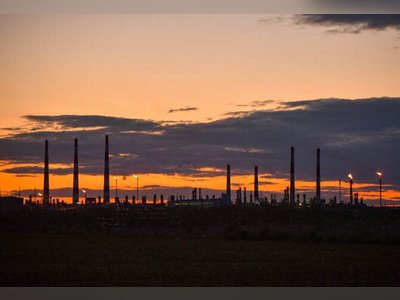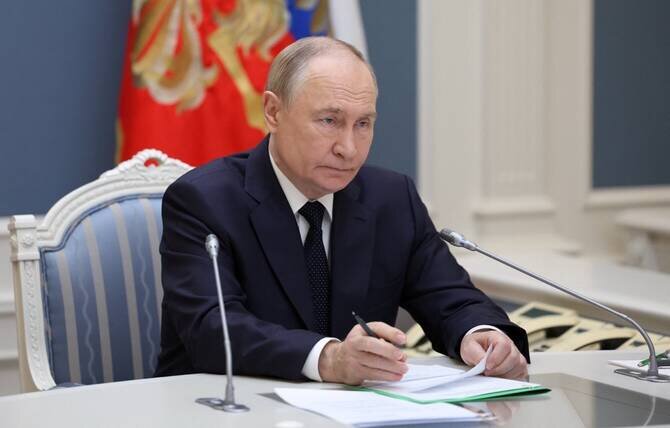
US Announces New Sanctions Against Russia's Oil Giants in Effort to End Ukraine War
The US government imposes economic sanctions on Rosneft and Lukoil, targeting the Russian oil industry in an attempt to pressure Putin into ending the ongoing conflict with Ukraine.
In a significant move to bring an end to the ongoing war between Russia and Ukraine, the United States has announced new sanctions against two of Russia's largest oil companies, Rosneft and Lukoil.
The economic measures are designed to limit Russia's ability to finance its military efforts and force Russian President Vladimir Putin to negotiate a resolution to the conflict.
The sanctions, imposed by the US Treasury Department, target not only these major oil giants but also their respective subsidiaries.
This move aims to disrupt the economic engine that has sustained Russia's continued engagement in the war despite international isolation.
The decision comes after months of calls from Ukrainian President Volodymyr Zelensky and bipartisan pressure on President Donald Trump to take more stringent action against Russia's oil industry.
President Trump expressed hope that these sanctions would encourage Putin to become 'reasonable' and that both leaders would be willing to negotiate a peaceful resolution.
The sanctions were announced during NATO Secretary General Mark Rutte's visit to Washington, where discussions centered around the ongoing conflict and the military alliance's support for Ukraine through weapon deliveries coordinated with the US and European countries.
Treasury Secretary Scott Bessent emphasized that these measures are a direct response to Russia's refusal to end its 'senseless war' and aim to choke off 'the Kremlin's war machine.' He indicated that further actions may be taken if necessary to support ongoing efforts to bring peace to the region.
The US encourages its allies to adhere to these sanctions and join in the economic pressure on Russia.
The announcement of the new sanctions coincides with a surge of Russian attacks across Ukraine, including drone strikes and missile barrages targeting at least eight Ukrainian cities and resulting in civilian casualties.
Despite these losses, both sides continue to invest in long-range strike capabilities aimed at rear areas.
In what appears as a coordinated international response, efforts are being made to step up economic pressure on Russia through further sanctions.
An EU summit set for Thursday will address the possibility of additional measures against Russia, while a Coalition of the Willing meeting in London aims to solidify global support for Ukraine.
Ukrainian forces have also launched counterstrikes against Russian military and industrial targets within Russia, including a chemical plant in Bryansk region that produces crucial war materials.
These actions highlight the ongoing and intense nature of the conflict as both sides engage in a battle of attrition with significant human costs.
In the midst of these developments, President Trump has suggested that ending the war could be contingent upon NATO countries ceasing oil purchases from Russia and placing substantial tariffs on Chinese imports of Russian petroleum.
This proposal underscores the complex geopolitical dynamics at play, with both China and the US playing crucial roles in shaping Russia's military capabilities and diplomatic stance.
The economic measures are designed to limit Russia's ability to finance its military efforts and force Russian President Vladimir Putin to negotiate a resolution to the conflict.
The sanctions, imposed by the US Treasury Department, target not only these major oil giants but also their respective subsidiaries.
This move aims to disrupt the economic engine that has sustained Russia's continued engagement in the war despite international isolation.
The decision comes after months of calls from Ukrainian President Volodymyr Zelensky and bipartisan pressure on President Donald Trump to take more stringent action against Russia's oil industry.
President Trump expressed hope that these sanctions would encourage Putin to become 'reasonable' and that both leaders would be willing to negotiate a peaceful resolution.
The sanctions were announced during NATO Secretary General Mark Rutte's visit to Washington, where discussions centered around the ongoing conflict and the military alliance's support for Ukraine through weapon deliveries coordinated with the US and European countries.
Treasury Secretary Scott Bessent emphasized that these measures are a direct response to Russia's refusal to end its 'senseless war' and aim to choke off 'the Kremlin's war machine.' He indicated that further actions may be taken if necessary to support ongoing efforts to bring peace to the region.
The US encourages its allies to adhere to these sanctions and join in the economic pressure on Russia.
The announcement of the new sanctions coincides with a surge of Russian attacks across Ukraine, including drone strikes and missile barrages targeting at least eight Ukrainian cities and resulting in civilian casualties.
Despite these losses, both sides continue to invest in long-range strike capabilities aimed at rear areas.
In what appears as a coordinated international response, efforts are being made to step up economic pressure on Russia through further sanctions.
An EU summit set for Thursday will address the possibility of additional measures against Russia, while a Coalition of the Willing meeting in London aims to solidify global support for Ukraine.
Ukrainian forces have also launched counterstrikes against Russian military and industrial targets within Russia, including a chemical plant in Bryansk region that produces crucial war materials.
These actions highlight the ongoing and intense nature of the conflict as both sides engage in a battle of attrition with significant human costs.
In the midst of these developments, President Trump has suggested that ending the war could be contingent upon NATO countries ceasing oil purchases from Russia and placing substantial tariffs on Chinese imports of Russian petroleum.
This proposal underscores the complex geopolitical dynamics at play, with both China and the US playing crucial roles in shaping Russia's military capabilities and diplomatic stance.

